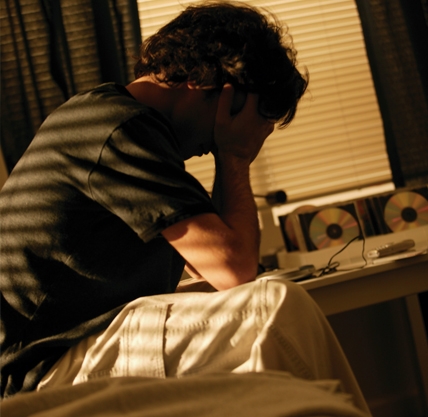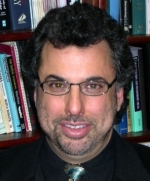
My husband, who is now 59, sustained a concussion in October 2007 when he fell on the ice, striking the occipital area of his head. To make matters worse, he fell again the next day and reinjured the same area. He didn't lose consciousness either time. His recovery was slow, but steady. Now, however, he gets severe headaches when he exerts himself or when he goes outside in extremely cold weather. His headaches are pretty bad and include nausea and, at times, dizziness. We went back to his doctor who did a CT scan with and without contrast. I do not yet have the results of those scans. But I'm concerned that something was missed. Could it be a slow bleed that occurs under exertion? Also, his personality has changed and he is often angry and depressed, and doesn't feel like doing things — traits that were not really "him" before the falls. How can I help him?
Even though your husband was not unconscious he may have other symptoms that increase his risk for long term problems. For example, was your husband "dazed or in any way addled" from the blow to his head? Did he have any focal, albeit transient, neurological symptoms such as seeing stars? More importantly, did he have an "amnesic gap," that is, a period of loss of memory, either before or after the blow to his head?
CT imaging of these types of injuries, are usually normal. There is a greater chance of seeing an abnormality when more sophisticated neuroimaging techniques are used such as magnetic resonance imaging (MRI) imaging. Other techniques such as MRI spectroscopy, diffusion tensor imaging (DTI), single photon emission computed tomography (SPECT), and positron emission tomography (PET) may also provide additional information suggesting brain injury or dysfunction. However, these latter techniques are not as commonly available and are considered by most professionals to still be mainly for research purposes.
Certainly, given the nature of his injury and his consistent complaints — especially the headaches but also the vertigo — it is possible that other injuries occurred at the time of the fall. These injuries could be the cause of the symptoms rather than the traumatic brain injury itself. For example, he may have had a cervical injury, which can cause referred headache pain ... that is, problems in the neck being "felt" in the head.
People who fall and strike the back of their head are also at risk for a condition that can cause significant stabbing head pain, known as occipital neuralgia. Involvement of the occipital nerve and even the upper neck musculature can refer pain to the same side of the head in the frontotemporal area and even to behind or around the eye. These types of falls with injury to structures in the upper neck can also cause headaches. And any type of severe head pain can cause nausea.
A blow to the head from a fall from standing height can cause a complicated concussion and, as noted above, can certainly cause neck injury, both of which can result in symptoms of dizziness or vertigo. If your husband has not had adequate assessment for these conditions, I would certainly recommend that he do so.
I think it's highly unlikely that he is having a slow bleed that occurs under exertion. Patients with chronic pain conditions, as a rule, tend to have secondary psychoemotional responses to their pain and limitations. Because of disruptions of sleep and the presence of chronic pain, they also tend to be irritable with shorter fuses and they can develop depression and even anxiety-related disorders. Depression and chronic pain can lead to lack of motivation, even without the presence of any brain injury.
It is possible that with a blow to the back of the head, the frontal lobes could be damaged, too. This is called a coup contracoup injury. If your husband has not been tested for anosmia — or loss of smell (or for that matter, altered smell) — he should be as the mechanism of the fall puts him at risk of this. If he does have smell loss then I would definitely recommend that he have a brain MRI.
Most importantly, your husband should see a specialist with an expertise in assessing individuals after these kinds of traumas and someone familiar not only with concussion but also the assortment of traumatic consequences that can occur from these kinds of falls including cervical trauma-related disorders, post-traumatic headache (which can have many different potential causes), and post-traumatic psychological impairment.
About the author: Nathan Zasler, MD
Nathan Zasler, MD is CEO and medical director for Concussion Care Centre of Virginia, Ltd. as well as CEO and medical director for Tree of Life Services, Inc. He is board certified in physical medicine and rehabilitation and fellowship trained in brain injury.


Comments (2)
Please remember, we are not able to give medical or legal advice. If you have medical concerns, please consult your doctor. All posted comments are the views and opinions of the poster only.
Anonymous replied on Permalink
Hi, I was in a car accident at age 18 and am now 37. I live with horrific daily head pain. I've had MRIs and they said it's most likely due to the occipital nerve in my neck rubbing against the healed but broken c6 vertebrate. Its called occipital neuralgia and chronic post traumatic headache. I was going 80 mph and had no seat belt on. It's only because of God that I'm alive. My best friend was driving and she died. Hard life. So now eight years ago I started getting pain like someone using a circular saw in my head. I thought I was going to die. It has changed some but now it's like a burning constant pressure and stabbing or slicing pain on top of my head. Sometimes it feels like bee stings all over my body. I got denied for ssdi and have no money. I pray something happens soon because I don't want to lose everything again. Pain is the worst and I hope your husband can get relief. I hope maybe he can relate to some of this too. God bless you.
Anonymous replied on Permalink
My husband is 56, when he was 18 he was in a serious car accident. At a speed of 70 mph he hit a car. Not wearing a seatbelt he hit his head on the windsheild. He had a fracture in his neck, and had too many stitches in his head to count. He wore a halo while in the hosp. He suffers from blinding headaches all these years later. Is it possible they are related to the crash?